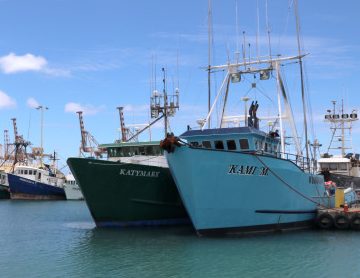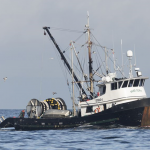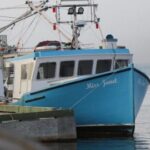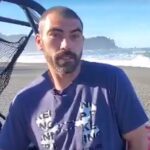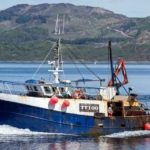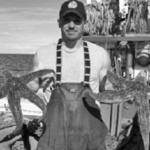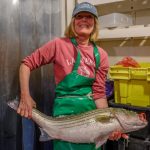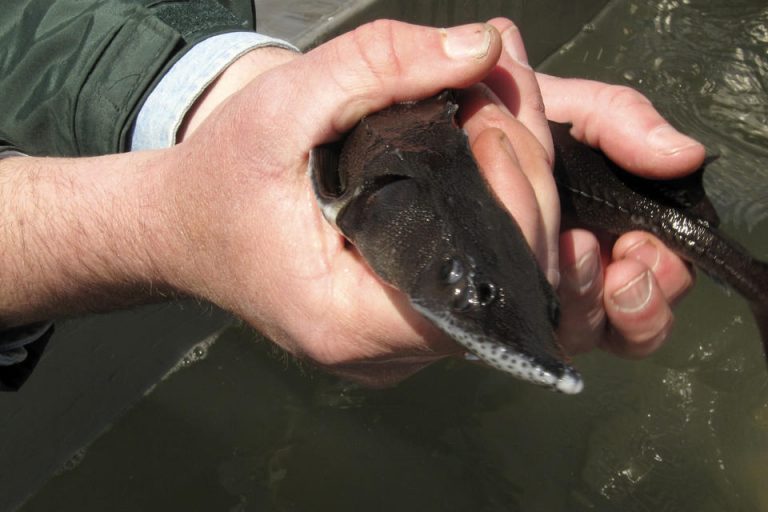Daily Archives: October 10, 2016
Is John Risely out to gut Ocean Choice International like a fish? By Ryan Cleary
 Nova Scotian John Risley who led a hostile takeover of Fishery Products International in 2001 that led to the company’s demise and the loss of hundreds of rural jobs — appears to be attempting another such takeover. This time of Newfoundland and Labrador-based Ocean Choice International — which bills itself as Canada’s “largest wild fish quota holder,” including highly lucrative snow crab, shrimp, scallops, cod, and turbot. If Risley succeeds he could potentially do to OCI what he did to FPI — gut it like a fish. I say that Risley is no friend of Newfoundland and Labrador, and if he gets his hands on OCI’s quotas the Grand Banks will be sold off to the highest bidder.Ryan Cleary is a former Newfoundland and Labrador MP, long-time journalist, and leader of FISH-NL, a group attempting to represent the province’s fish harvesters in a break-away union from the FFAW. Read the full piece, click here 22:21
Nova Scotian John Risley who led a hostile takeover of Fishery Products International in 2001 that led to the company’s demise and the loss of hundreds of rural jobs — appears to be attempting another such takeover. This time of Newfoundland and Labrador-based Ocean Choice International — which bills itself as Canada’s “largest wild fish quota holder,” including highly lucrative snow crab, shrimp, scallops, cod, and turbot. If Risley succeeds he could potentially do to OCI what he did to FPI — gut it like a fish. I say that Risley is no friend of Newfoundland and Labrador, and if he gets his hands on OCI’s quotas the Grand Banks will be sold off to the highest bidder.Ryan Cleary is a former Newfoundland and Labrador MP, long-time journalist, and leader of FISH-NL, a group attempting to represent the province’s fish harvesters in a break-away union from the FFAW. Read the full piece, click here 22:21
Pricey sea cucumbers face increasing sea otter appetites
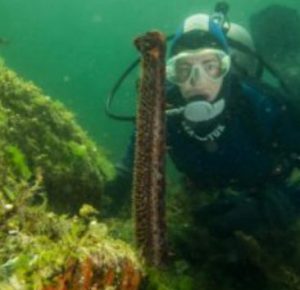 Sea cucumbers are the most valuable of Alaska’s dive fisheries and give a nice boost to coastal towns, especially in Southeast. Annual harvests each October hover around one million pounds and attract nearly 200 divers, who will fetch between $4 to $5 a pound for their pickings. The harvest used to approach two million pounds but sea otters have cleaned out cucumbers in many areas over the past decade. None of the areas they have gone back and resurveyed have they seen any sea cucumbers. It’s not like the otter come in and move on and the population rebounds. The otters stay. We’ve lost on an annual basis between 500-000 to 600,000 pounds of product and the trend is downward. Audio report, read the rest here 16:46
Sea cucumbers are the most valuable of Alaska’s dive fisheries and give a nice boost to coastal towns, especially in Southeast. Annual harvests each October hover around one million pounds and attract nearly 200 divers, who will fetch between $4 to $5 a pound for their pickings. The harvest used to approach two million pounds but sea otters have cleaned out cucumbers in many areas over the past decade. None of the areas they have gone back and resurveyed have they seen any sea cucumbers. It’s not like the otter come in and move on and the population rebounds. The otters stay. We’ve lost on an annual basis between 500-000 to 600,000 pounds of product and the trend is downward. Audio report, read the rest here 16:46
WWF calls for shut down of commercial fishing to save Pacific bluefin tuna
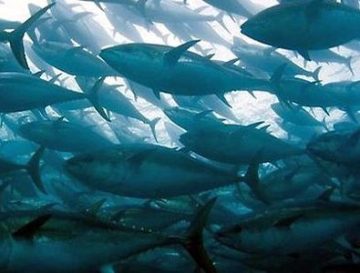 World Wildlife Fund (WWF) has called for the suspension of commercial fishing to save Pacific bluefin tuna because of the inaction of responsible agencies in addressing the decrease in stock. WWF Oceans and Seafood group leader Dr Aiko Yamauchi said members of the Northern Committee (NC) of the Western and Central Pacific Fisheries Commission (WCPFC) have failed to agree to an urgently-needed recovery plan to save Pacific bluefin tuna. WCPFC was established by the Convention for the conservation and management of highly migratory fish stocks in the Western and Central Pacific Ocean “Because of the lack of progress and the repeated inaction of the responsible bodies, the Pacific bluefin stock will continue to teeter on the edge of collapse,” Dr Yamauchi said. “We call for a full suspension of commercial fishing of this species until a Pacific-wide rebuilding and management plan has been agreed. Link 14:35
World Wildlife Fund (WWF) has called for the suspension of commercial fishing to save Pacific bluefin tuna because of the inaction of responsible agencies in addressing the decrease in stock. WWF Oceans and Seafood group leader Dr Aiko Yamauchi said members of the Northern Committee (NC) of the Western and Central Pacific Fisheries Commission (WCPFC) have failed to agree to an urgently-needed recovery plan to save Pacific bluefin tuna. WCPFC was established by the Convention for the conservation and management of highly migratory fish stocks in the Western and Central Pacific Ocean “Because of the lack of progress and the repeated inaction of the responsible bodies, the Pacific bluefin stock will continue to teeter on the edge of collapse,” Dr Yamauchi said. “We call for a full suspension of commercial fishing of this species until a Pacific-wide rebuilding and management plan has been agreed. Link 14:35
House fisheries committee to meet on Alaska and British Columbia transboundary mining issues Oct. 12
 The governments of Alaska and British Columbia announced on Oct. 6 the signing of a non-binding agreement focused on transboundary waters. Federal level involvement of the governments of the United States and Canada is needed, however, to ensure that enforceable measures and financial liabilities are identified to protect habitat critical to the economy and lifestyle of Southeast Alaska. The Alaska House Fisheries Committee will hold a public hearing on transboundary mining issues Oct. 12 to hear from fishermen, business owners, municipal and tribal leaders and other concerned citizens. The session will run from 10 a.m. to 4 p.m., with a half hour break from noon to 12:30 p.m. The toll free call-in number is 1-844-586-9085. The session was prompted by growing concerns over potential adverse impact on salmon habitat in transboundary waterways from mining development near the headwaters of rivers flowing from British Columbia into Southeast Alaska. Link 13:43
The governments of Alaska and British Columbia announced on Oct. 6 the signing of a non-binding agreement focused on transboundary waters. Federal level involvement of the governments of the United States and Canada is needed, however, to ensure that enforceable measures and financial liabilities are identified to protect habitat critical to the economy and lifestyle of Southeast Alaska. The Alaska House Fisheries Committee will hold a public hearing on transboundary mining issues Oct. 12 to hear from fishermen, business owners, municipal and tribal leaders and other concerned citizens. The session will run from 10 a.m. to 4 p.m., with a half hour break from noon to 12:30 p.m. The toll free call-in number is 1-844-586-9085. The session was prompted by growing concerns over potential adverse impact on salmon habitat in transboundary waterways from mining development near the headwaters of rivers flowing from British Columbia into Southeast Alaska. Link 13:43
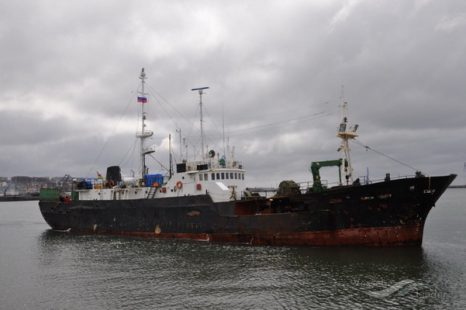
Trawler Sky Wind arrested for illegal crab fishing in Sakhalin
Fishing trawler Sky Wind was arrested and fined for illegal crab fishing in the Russian waters near Sakhalin. The vessel was detained by the boarded guard and navy for routine check, but on board the inspectors found 1 ton of frozen crab products produced from 2.6 tons of live crab. The ship was escorted to the Russian port, where was held rapid administrative procedure for violating the rules for fishing. The shipowner of the fishing trawler was fined with 2.5 million rubles (about 40,000 USD), while the Master received smaller fine. The vessel was seized for the income of the Russian state, until the fine is transfered. The crew is currently in good health conditions and has enough supplies. Read the story here 13:09
Researchers: Global Warming Could Wipe Out Maine Lobsters in 85 Years!
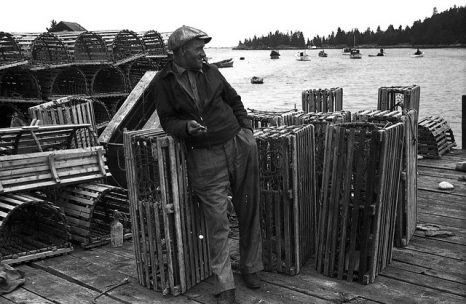 The Gulf of Maine is warming at an alarming rate. Research by the National Oceanic and Atmospheric Administration shows ocean temperatures are rising at three times the rate of global averages. This increase in temperatures is linked to the collapse of the New England cod population, and new research shows the fate of the Maine lobster is likely similar. A new report from the University of Maine Darling Marine Center and the Bigelow Laboratory for Ocean Sciences predicts the Maine lobster population will be wiped out by 2100 due to climate change. The study examined how lobster larvae are impacted by rising ocean temperatures and ocean acidification. Although acidification seems to have no significant impact on the larvae, warming temperatures are a different story. Lobsters reared in water that is 3 degrees Celsius warmer than current temperatures in the western Gulf of Maine had bleak survival rates. Read the rest here 11:51
The Gulf of Maine is warming at an alarming rate. Research by the National Oceanic and Atmospheric Administration shows ocean temperatures are rising at three times the rate of global averages. This increase in temperatures is linked to the collapse of the New England cod population, and new research shows the fate of the Maine lobster is likely similar. A new report from the University of Maine Darling Marine Center and the Bigelow Laboratory for Ocean Sciences predicts the Maine lobster population will be wiped out by 2100 due to climate change. The study examined how lobster larvae are impacted by rising ocean temperatures and ocean acidification. Although acidification seems to have no significant impact on the larvae, warming temperatures are a different story. Lobsters reared in water that is 3 degrees Celsius warmer than current temperatures in the western Gulf of Maine had bleak survival rates. Read the rest here 11:51
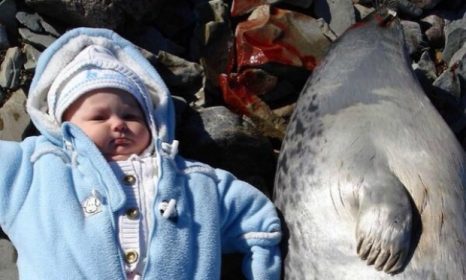
Tanya Tagaq: Anti-sealing movement is ‘the bad guy’
The anti-sealing movement targets the wrong people, says Inuk throat singer Tanya Tagaq. Tagaq, delivering a keynote speech Sunday at the Inuit Studies Conference at Memorial University, touched on her pro-sealing views that drew criticism n 2014, when she tweeted a picture of her baby daughter next to a freshly killed seal near her hometown of Cambridge Bay, Nunavut. She displayed the picture during her speech at MUN’s Angus Bruneau Centre on Sunday. “This picture caused a shitstorm,” said Tagaq, who explained she posted it in support of a social media campaign to educate people on human seal hunting. “Inuit are being cornered into an economic world, economic system, a sedentary way of life.” The Inuit are not in control of their own resources, said Tagaq.”Before the seal ban, we were thriving, being able to provide for our families and buy hunting supplies and pay rent by doing what we’ve always done, which is loving and protecting our seals and living amongst them and eating them and utilizing them.” Read the story here 09:54
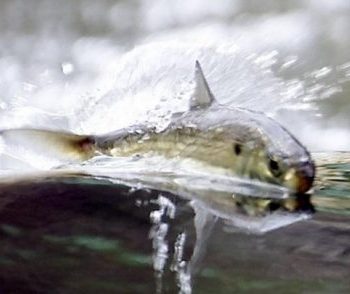
Trouble for Bay State River herring trapped by drought in Lakeville, Middleboro, Rochester
The historic drought trapped at least a million young river herring in Assawompsett Pond as they tried to swim out to the ocean, and a state biologist says countless more are likely stuck up and down the Massachusetts coast. The water in Assawompsett has been too low to flow over the spillway that leads to the Nemasket River, on the Lakeville-Middleboro line. Each spring, adult herring make their way upstream to spawn. Hatchlings spend the summer in inland waters. In late summer, fall, and into the winter, young fish swim out to the ocean. If they get stuck, it can present some problems. “My understanding is they can winter over if they have to, but it’s not a preferred option,” Cavanaugh said. If the water gets too cold, or if an ice cap reduces oxygenation, it can kill fish. Read the story here 08:30
What the UK’s fishing industry wants from Brexit
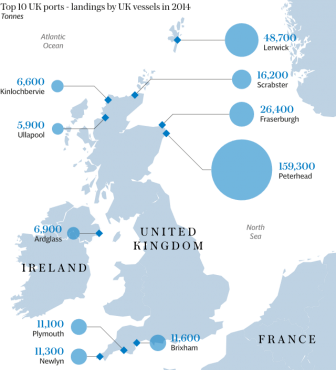 By the time dawn breaks behind the tall towers of Canary Wharf in London, home to dozens of banks and other financial institutions, Bill Thornton is already halfway through his day. A trader for 35 years, he is used to hard work and waking up in the early hours of the morning. But Thornton is not a banker. He doesn’t wear a suit or tie and there is not a briefcase in sight. His domain lies in the shadow of the big banks – in Billingsgate fish market. At James Nash & Son, the Billingsgate wholesale fish merchant where Thornton works, you have to be up early to see the array of fish on display: cod from Peterhead, skate from Aberdeen and lemon sole from Newlyn. Most have travelled from trawler to market within 24 hours. Many here are celebrating the Brexit vote. The fishing industry was a focal point of the EU referendum campaign. Nigel Farage, the former Ukip leader, has since said that the industry is a touchstone for Brexit. Leaving the EU means “getting our fishing waters back” – or we haven’t really left at all. Thornton, who voted for Brexit, has felt the impact of the EU’s common fisheries policy personally. “It decimated the fishing industry,” he says. “Our price of entry to the EU was giving up our fishing rights. Ted Heath sold us down the river.” Read the story here 07:55
By the time dawn breaks behind the tall towers of Canary Wharf in London, home to dozens of banks and other financial institutions, Bill Thornton is already halfway through his day. A trader for 35 years, he is used to hard work and waking up in the early hours of the morning. But Thornton is not a banker. He doesn’t wear a suit or tie and there is not a briefcase in sight. His domain lies in the shadow of the big banks – in Billingsgate fish market. At James Nash & Son, the Billingsgate wholesale fish merchant where Thornton works, you have to be up early to see the array of fish on display: cod from Peterhead, skate from Aberdeen and lemon sole from Newlyn. Most have travelled from trawler to market within 24 hours. Many here are celebrating the Brexit vote. The fishing industry was a focal point of the EU referendum campaign. Nigel Farage, the former Ukip leader, has since said that the industry is a touchstone for Brexit. Leaving the EU means “getting our fishing waters back” – or we haven’t really left at all. Thornton, who voted for Brexit, has felt the impact of the EU’s common fisheries policy personally. “It decimated the fishing industry,” he says. “Our price of entry to the EU was giving up our fishing rights. Ted Heath sold us down the river.” Read the story here 07:55






